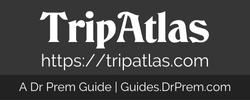Cuba may be one of the more desirable destinations Canadians choose in great numbers every winter, but each season brings questions about its currency, its travel health policy requirements, and other concerns.
I receive questions from people who remember something about new Cuban legislation that states that even Canadians need to prove we have sufficient health coverage when we travel to Cuba. They want to know what that is all about.
And they are also confused about what kind of money we should be taking with us, and where and how we should exchange it to Cuban currency. Finally, there are question about the Cuban departure tax which they are not sure whether or not is covered in the price of the package upfront.
Here are the facts. Just over a year and a half ago Cuba introduced a new policy that requires travellers to present proof they have sufficient health coverage in order to be allowed entry.
At the outset, this caused a tremendous amount of confusion. Cuba did not do a very good job of outlining what it meant by sufficient, and what was the nature of burden of proof the traveller would need to demonstrate.
What this means for Canadians is that we must produce a provincial health card.
This is not to suggest you should not have supplementary travel coverage. It is important when travelling to Cuba as it is to any other destination.
Provincial health coverage does have its limitations. As an example, if it is deemed better to fly a patient home instead of accepting treatment there, only private plans will provide that service.
Most provincial plans will not cover costs upfront, and that may be what is expected by the hospital to which you are transported. This could be the same requirement with some private insurers as well, so it is best to check the fine print before you depart. On www.voyage.gc.ca it is clearly pointed out Cuban authorities will not allow anyone with outstanding medical bills to leave the country.
When purchasing your insurance, be advised that because of the decades-long embargo against Cuba by the United States, Cuba will not recognize a policy issued by a U.S. insurance company.
In terms of money, there are two official currencies used in Cuba. One is the Cuban Convertible Peso (CUC), which is used by tourists and can be purchased right at the airport upon arrival. This currency has no value outside the country, so arrive at the airport early enough on the day of your departure to change all of these pesos back to Canadian.
Their other currency is the National Peso or MN, which is worth a pittance of the CUC. Heed this warning: Apparently it is a common scam in Cuba for some merchants and others to try to give tourists change in MN instead of CUC.
I am often asked about the use of traveller’s cheques in Cuba. Even though you may purchase them from a Canadian financial institution, the reality is that in Manitoba they are all, to my knowledge, processed through U.S. clearing houses.
While credit cards can be used in many establishments, they are not accepted everywhere. And you might as well leave your debit card at home. You will not likely be able to use it anywhere on the island. There are a few ATMs in place but even these are few and far between.
As a final note, I was surprised to find a caution on the website relating to renting automobiles in Cuba. The advisory suggests Canadians should avoid driving in Cuba completely.
Traffic accidents are one of the highest causes of arrest and detention of Canadians. That is because any accident that results in injury or death is automatically treated as a crime from the outset. The onus is on you, the driver, to prove your innocence. This is not easy to do when you don’t speak Spanish.
It can take many months for a case to go to trial. In the meantime, your home is in Cuban detention.
Unlike Canada, rentals are all government-controlled. You will not be leaving the country until all outstanding real and perceived debts are satisfied, and from reports, the charges for damage can reach into the thousands of dollars.
Finally, there is a departure tax that must be paid before you leave Cuba. Many do not expect this, believing that charge has been included in the overall price of the vacation package by the tour operator. That is not the case, so hold on to 25 CUC per person. That is the airport tax that will be levied and it can only be paid in CUC currency.
This is truly a most wonderful country to visit, and thousands come back to Canada raving about the experience. The information here is meant to clear the widespread confusion.
If you have travel questions you would like answered, forward them to me @ askjourneys@journeystravel.com I will answer them directly and you will often see that answer publisher here, in the Winnipeg Free Press where I write a weekly column, and on https://tripatlas.com/new/ where I also publish many of my columns and stories to reach a national audience.
You can listen to my weekly radio show (The Journeys Travel Show) live at noon CST on http://www.cjob.comron/ Pradinuk is president of Journeys Travel & Leisure SuperCentre and can be heard Sundays at noon on CJOB.
Travel products, previous columns, travel tips, and travel stories can all be found at http://www.journeystravelgear.com/
One of the product categories most in demand over the last year because of the world wide publicity regarding the epidemic that hits even the best hotels are bed bug protection products. We have a selection of luggage protectors you can order on line. There is only one thing worse than having bed bugs in your hotel room bed. That is bringing them back home in your luggage. Bug Zip protects against that happening.

